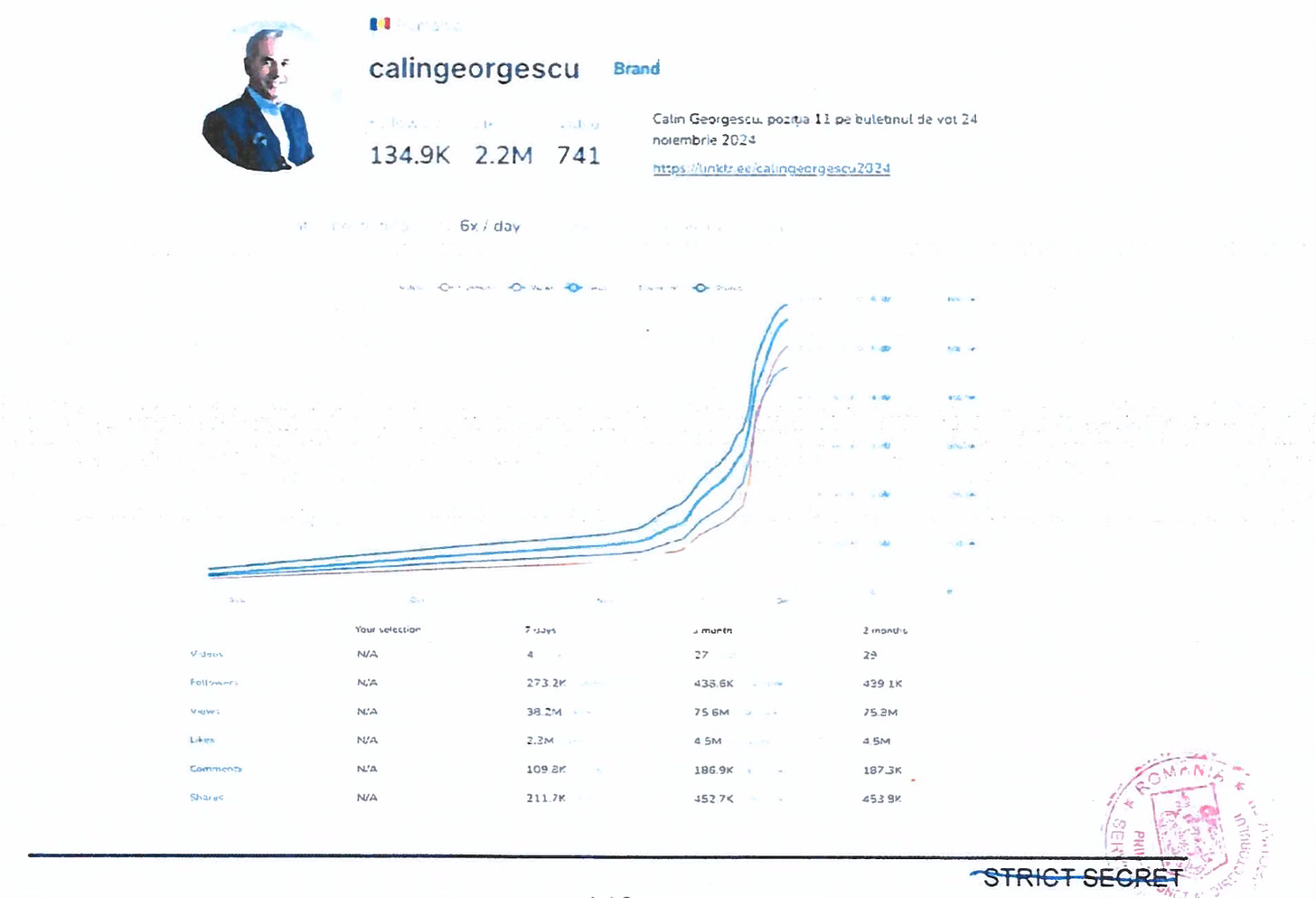TechLetters Insight. Promotional/influence campaign tactics in Romanian 2024 presidential elections
A curious thing happened in Romania. A broadly unknown/unpopular candidate scored the best result. It turned out that influence campaigns and TikTok were instrumental in this campaign. This assessment is based on the declassified Romanian documents concerning the semi/covert digital campaign to promote Călin Georgescu. The most fascinating technique - which I also cover in my book Propaganda - is the use of subliminal tactics. This was so impactful a case that Romanian Supreme Court annulled first round of presidential elections.
Subliminal Messaging and Tactics
Initially, the campaign employed subliminal techniques to subtly influence public opinion without direct mentions of Călin Georgescu. Content primarily focused on motivational themes, emphasizing traits like leadership, renewal, and national pride. Hashtags, visual cues, and emotionally charged imagery were strategically used to link these values to Georgescu’s candidacy. As the campaign progressed, the candidate name began to appear more explicitly, but still within a broader emotional framework. This may have resonated with the initial emotional and promotional buildup. I asses that it was highly effective, and the engaged marketing campaign was in fact genius.
Paid Influencers and Campaign Strategy
The campaign hinged on an influencer-for-hire site, offering to engage influencers to, well, promote things. The campaign relied heavily on paid influencers and coordinated social media efforts to maximize its impact. Some influencers were fully aware of their participation, receiving financial compensation via influencer-for-hire platforms like FameUp and FA Agency. Others unknowingly participated by sharing pre-drafted content.
Clear instructions were provided to influencers, guiding them on specific hashtags, profiles, and themes related to the "ideal President" model. This ensured uniformity in messaging and helped amplify **Călin Georgescu**'s narrative.
Overall Campaign Strategy and Execution
The overall campaign strategy was highly coordinated, with more than 25,000 TikTok accounts activated around two weeks before the election. This effort was not spontaneous but carefully orchestrated. Interestingly, 797 of the accounts were created as early as 2016 and remaining inactive until the campaign ramped up. The accounts were assigned unique IP addresses, indicating a deliberate effort to conceal the true scale of the network. This approach bypassed typical botnet detection patterns. Professional job.
The activity of these accounts was coordinated outside TikTok, primarily on Telegram and Discord, where recommendations for bypassing TikTok’s verification mechanisms were discussed.
Russian Influence and Disinformation Tactics
A detailed sociological research of the target states like trends in public opinion, political outlook of specific parties/candidates is being conducted to identify risks/vulnerabilities and the capacity to respond. The focus has been on information aggression, including propaganda uses of of artificial intelligence for content creation. This information is based on declassified reports from the Serviciul de Informații Externe (SIE), the Romanian Intelligence Service. Based on the declassified information, it seems that Moldova was a testing ground for these strategies, where the manipulation of information was tailored to specific demographic groups and populations. Content was adapted to reflect political developments.
TikTok’s (in?)actions
Despite the Central Electoral Bureau's (BEC) decision requiring the removal of electoral content that lacked proper identification, TikTok’s response was inadequate. TikTok claimed that it took down requested content. However, it remained visible and accessible to the Romanian public, even after the campaign ended and on election day, violating Romanian law. This happened in elections not only in Romania, by the way. Furthermore, TikTok categorized some of these electoral posts as entertainment content, allowing them to be widely displayed.
Money
Călin Georgescu declared a null (0 lei) electoral budget to the Romanian electoral authority, claiming that no funds were spent during his campaign. Evidence revealed that financial support was provided by a Romanian citizen Bogdan PEȘCHIR, who funded the promotion of Georgescu's candidacy on TikTok.
Outlook
Expect more of such informational interferences. Of course they won’t be 1:1 analogues. If in doubt, read my book.
Updates.
[9/12/24] TikTok appears to be showing different numbers than Romanian intelligence/security agencies. TikTok: 78 accounts involved (not 25,000 or so). How to explain the divergence: objective like differing classification methods, or … something else.
Some analysts consider the Constitutional Court decision as too harsh (the cancelling of elections, vs what’s in the justification)




